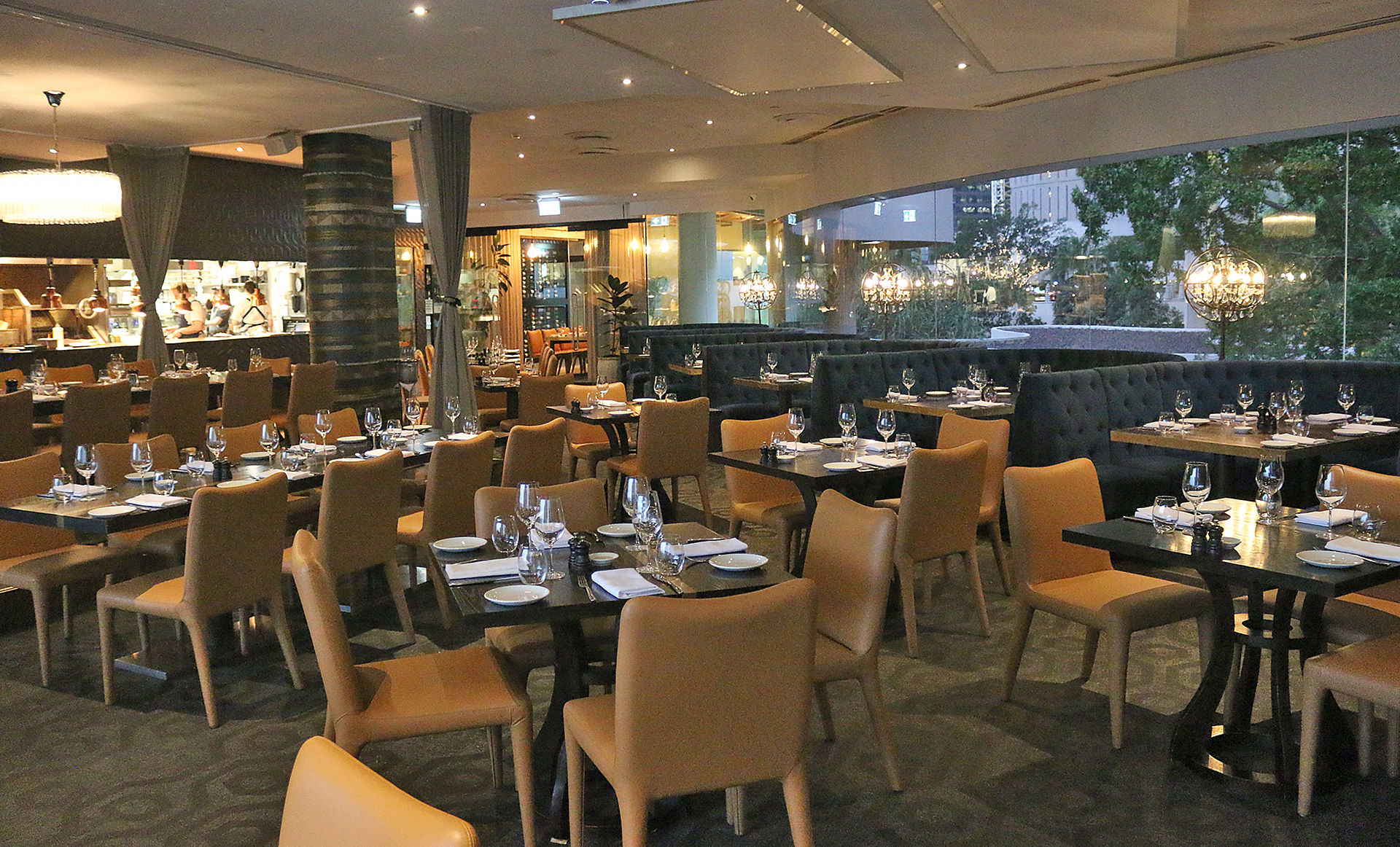The No Tax on Tips Act is one step closer to becoming law, as members of the Senate of the United States voted unanimously in favor of the legislation, which is designed to bring financial relief to employees who rely on gratuities as income.
No Tax on Tips Act One Step Closer To Becoming Law
Also known as Senate Bill 129, the No Tax on Tips Act would:
- Create a tax deduction worth up to $25,000.00 on gratuities that is limited to cash tips that employees report to employers for withholding purposes on payroll taxes
- Be restricted to employees who earn a maximum of $160,000.00 in 2025 — and that amount will increase with inflation in future years.
“President Trump made a promise to the American people that he would eliminate taxes on tips”, according to this official press release from Ted Cruz, who is one of the two senators that represents the state of Texas and introduced the bill back in January of 2025. “In Congress, I formed a bipartisan, bicameral coalition to get that done, and in the Senate introduced the No Tax on Tips Act. Today, I went with Senator Rosen to the floor to secure Senate passage of the bill. This legislation will have a lasting impact on millions of Americans by protecting the hard-earned dollars of blue-collar workers, the very people who are living paycheck-to-paycheck. I urge my colleagues in the House to pass this important bill and send it to the President’s desk to be signed into law.”
The next step for this bill is for members of the House of Representatives of the United States to vote on it. If this bill becomes law, it is expected to be effective as of Thursday, January 1, 2026.
Only between two percent and 2.5 percent of workers would directly benefit from their gratuities being exempt from taxes; which means that the No Tax on Tips Act will be irrelevant to greater than 95 percent of households and hard-working people — and even to many employees who receive gratuities, with the potential for unintended consequences for both consumers and the federal budget.
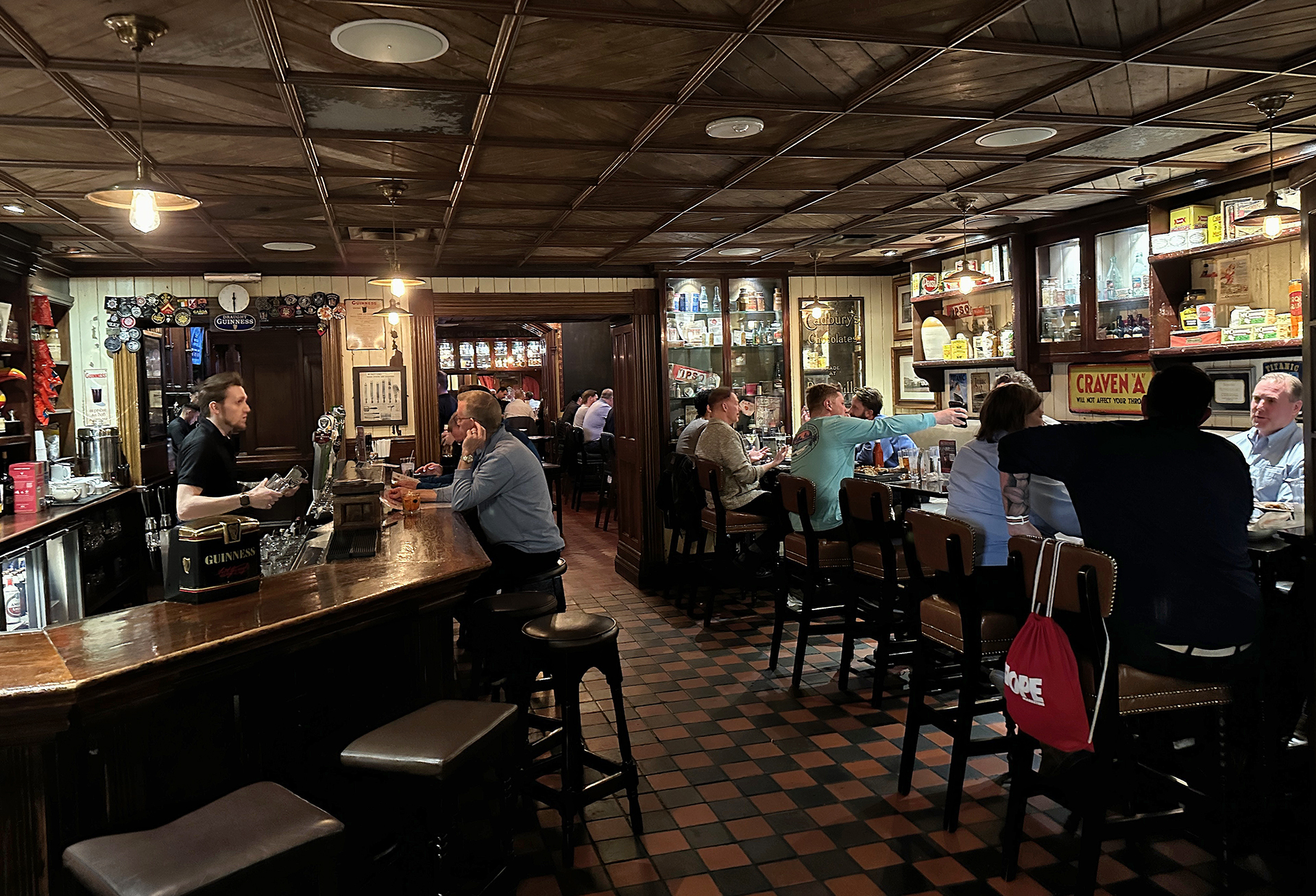
The practice of giving workers tips and gratuities has spiraled out of control in the United States. The “add tip” functionality that has been added to point-of-sale systems and other evolving technology is purportedly designed to guilt the customer into leaving more money or tipping more often to members of the staff at a dining establishment than the customer might have originally intended. More of those little hand-held machines are being used by various types of eateries.
Worse is that the cost of food itself has increased due to inflation and disruptions in the supply chain among other factors — so even if the standard gratuity remained at 15 percent, the tip itself automatically increases based solely on the cost of the food.
A Conservative Example of Gratuities Which Are Not Subject as Taxable Income
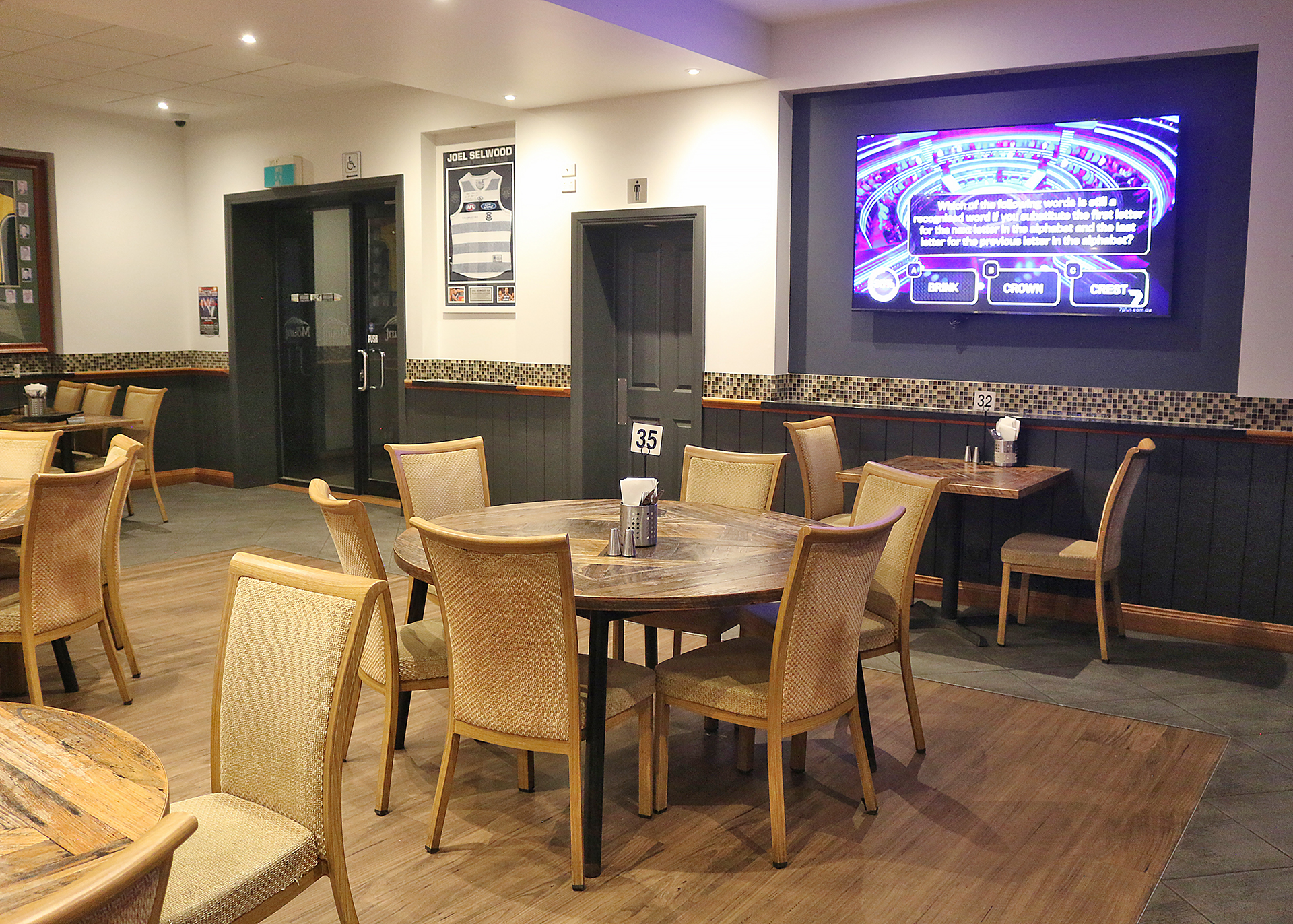
If a server waits on five tables — each of which has five sets of customers that spend an average of 1.5 hours at each table — during a shift of eight hours at a restaurant and the average cost of a meal is $50.00 before taxes are added with the gratuity being 15 percent, the server earns $187.50 in gratuities alone. The pay does not include the meager and shameful $2.13 per hour minimum that the management of a restaurant is required to pay, which adds another $17.04 in pay. If the server works five days per week, the gratuities may average $937.50 and the base pay would be another $85.20 before taxes…
…but if the server no longer needs to pay taxes on gratuities, the income on the gratuities alone becomes $46,875.00 annually and does not include the $4,260.00 in salary before taxes or $3,322.80 after taxes. This is equivalent to a person who earns greater than $60,000.00 per year before taxes at a rate of 22 percent. Considering that conservative numbers were used — meaning a family of four would pay well more than $50.00 before taxes and gratuities; and that the gratuities may typically be more than 15 percent with each customer — that $50,197.80 after taxes becomes a rather decent to good annual income.
Would the suggested amount for a gratuity decrease once the requirement to pay taxes on gratuities is removed? Of course not. In fact, the opposite will likely become true: you will be badgered significantly more to leave as much of a gratuity as possible — even if you get no service. Gratuities become free money of which 100 percent can be kept by the earner if no taxes are levied on them — and that alone is a strong incentive to want to earn even more at your expense.
This sickening culture of tipping is already spreading to infect other parts of the world. Customers are not only expected to pay usurious tips simply for the privilege of picking up food at a take-out dining establishment; but we are also expected to pay gratuities to breakfast attendants at hotel properties, to members of the housekeeping staff even though services may have been significantly reduced, and even possibly to flight attendants — all of this in addition to ridiculous mandatory fees and taxes that are automatically added to our bills. The hamburger that costs ten dollars on a menu costs significantly more by the time a diner is ready to pay for the meal.
Taxes on Travel to Increase as a Result?
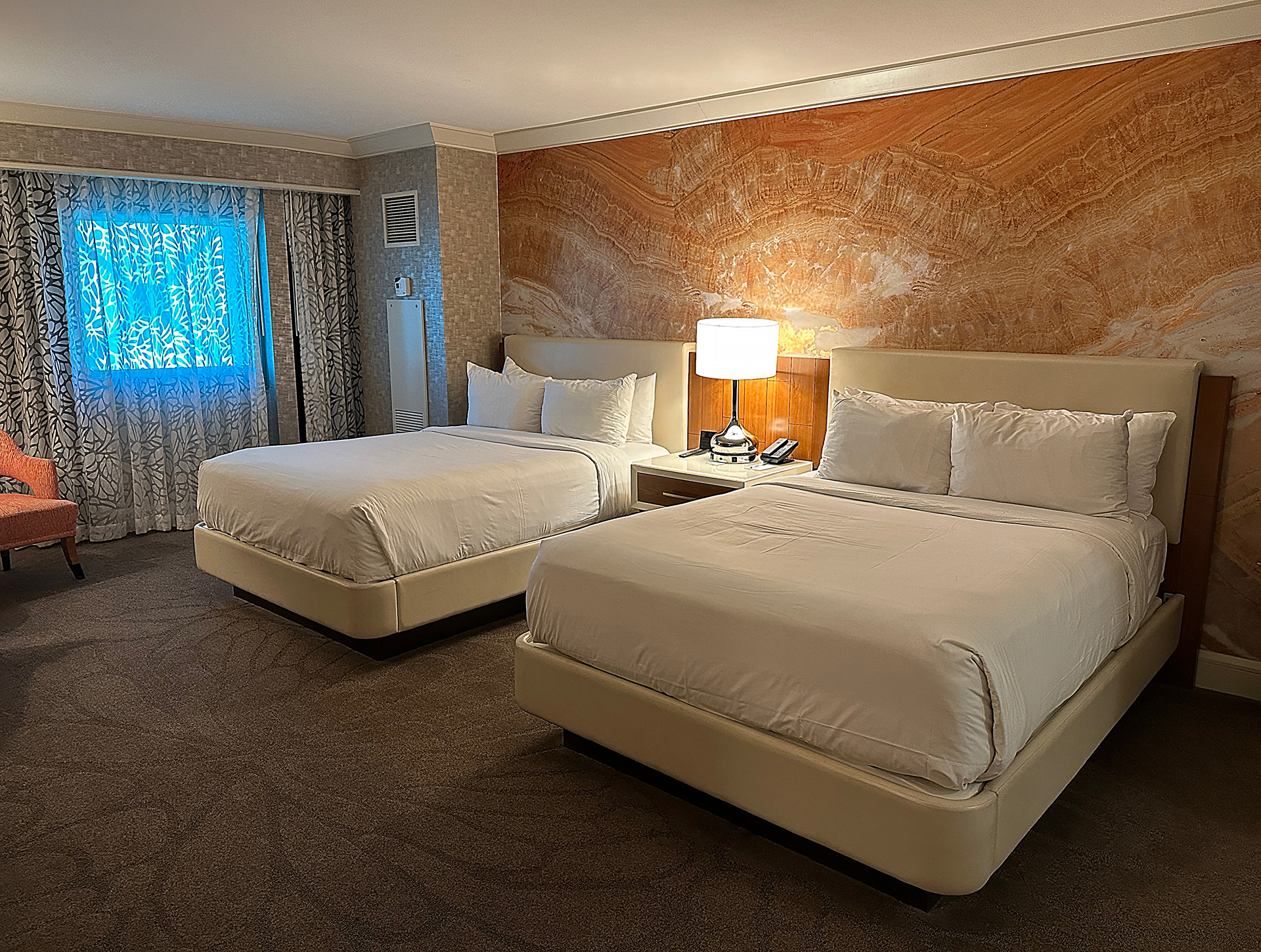
Another potential detriment to no taxes on gratuities is the loss of taxable income by the federal government of the United States. Assuming that that loss of income is an even one billion dollars per year as a completely random amount, the federal government is not simply going to “shrug its shoulders” and say “oh, well — we are short by one billion dollars. That’s life.” The money has to come from somewhere. Will it come from an increase in taxes or a decrease in services that are offered by the federal government?
If so, the one place that perpetually seems to be a “cash cow” for revenue is the travel industry. When a government wants to increase revenue, it usually looks towards taxing people who travel because people who travel are typically not the constituents of politicians — so the constituents are not angry at the politicians who represent them. As one of many examples, a tax in the state of Georgia adds five dollars per night for hotel stays as the result of a law that became effective as of Wednesday, July 1, 2015, which means that a stay of five nights in the state of Georgia will tack on $25.00 to your folio — in addition to the room rate and existing taxes and fees — when you check out of your room.
Of course, the Federal Reserve Board of the United States can also simply order for more money to be printed — but that potentially weakens the dollar while simultaneously increases inflation. We have already experienced the detriment of simply giving money away during and after the 2019 Novel Coronavirus pandemic and how that was one of the factors that caused inflation to increase to a rate as high as 9.1 percent in 2022 — which was the highest rate in greater than 40 years. That in turn created a lot of problems for what became an overheated economy — especially as many people temporarily lost the incentive to work for a living.
Examples of How Tipping and Gratuities Have Already Spiraled Out Of Control
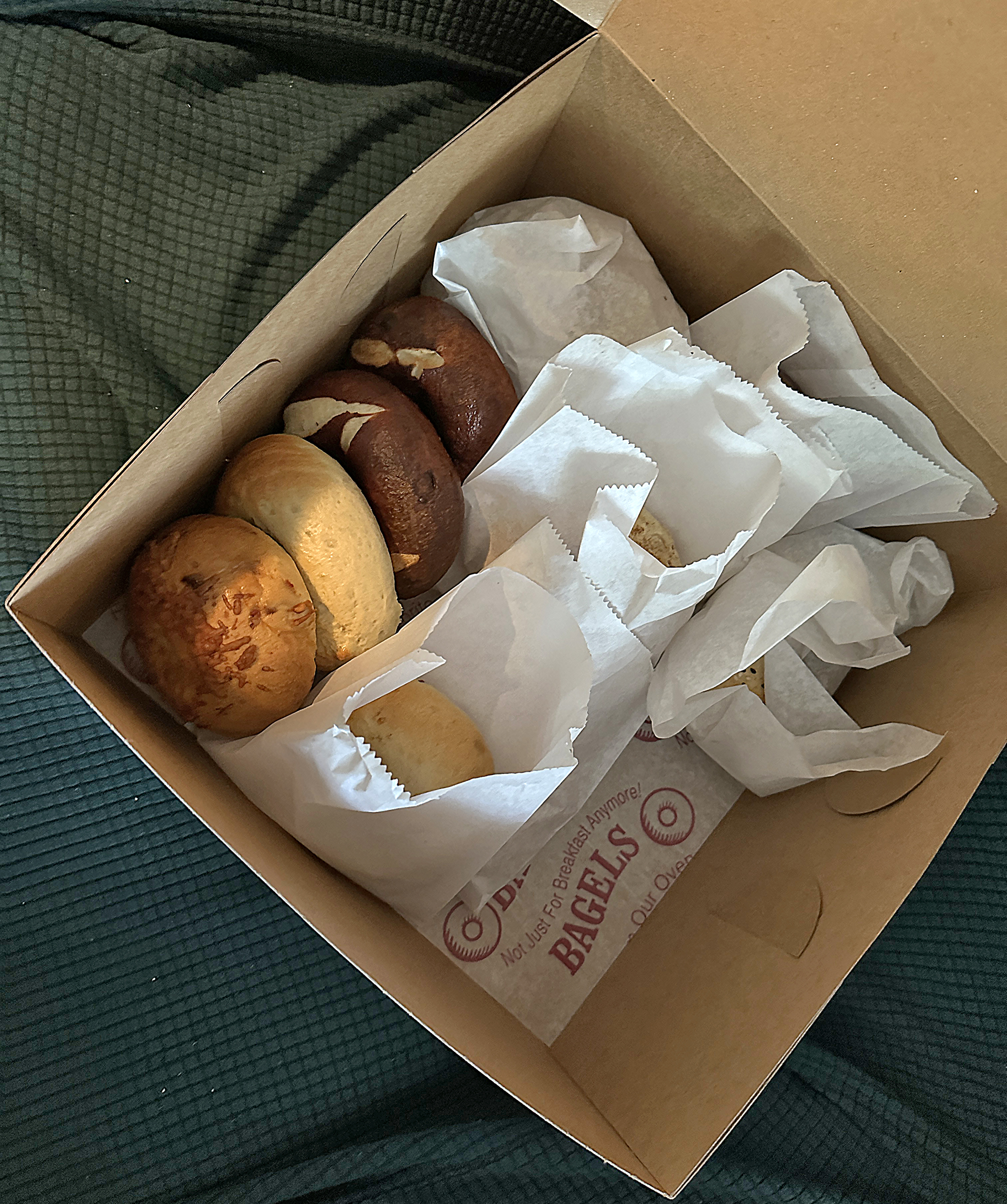
One example of how tipping and gratuities are already out of control happened to me only yesterday, Tuesday, May 20, 2025. A relatively new bagel shop opened of which I have heard good reviews; so I finally went there and paid $32.10 for a dozen bagels, which did not include the customary thirteenth bagel as what is known as a baker’s dozen. That is the most money I have ever paid for bagels — and as someone who was born and raised in Brooklyn and had arguably the best bagels and bialys in the world, these bagels had better be amazing.
They were not.
I ordered assorted flavors of bagels to try them out: Mango Tajin, Maple Bacon, Sun Dried Tomato Basil, Pretzel, Chocolate Chip, Cinnamon Raisin, Blueberry, Cranberry, Everything, and even Plain. Most of them were good. The flavor of some of them was boringly one note and milquetoast at best. The texture of other bagels were merely okay. The pretzel bagel was my favorite — and even that one could use some improvement…
…but when I paid the bill before the order began to be fulfilled, the electronic point-of-sale system prompted me to choose which gratuity I wanted to pay — starting at 15 percent and ranging up to 25 percent — or I can enter my own custom amount to leave as a tip.
I ultimately declined to leave a tip to someone who fetched an oversized box in which to put my bagels. That was her job, which took her fewer than five minutes once she finally started fulfilling the order. Why would I pay extra money for bagels that were not hot or warm and already rather pricey? What exactly would I be getting in return for paying a gratuity?
If a tip of 15 percent that does not include sales tax that was charged on the order was given, that would amount to at least $4.50 for five minutes worth of work, which comes out to $54.00 per hour — and that does not include her base pay.
Being conservative by giving her working four hours per day three days per week for 50 weeks, that is $32,400.00 per year in addition to her base pay. That is some pretty nice money for stuffing bagels in a box or a bag — especially if the gratuities are not taxed.
No, not everyone is going to order a dozen bagels. Some people may order a bagel or two…
…but as the bagel shop also offer sandwiches, spreads, drinks, alcoholic beverages, and other items for sale, $32.10 per order is not an unreasonable average.
Other absurd examples of how tipping and gratuities are already out of control include some of those point-of-sale machines suggesting to leaving a gratuity of as much as 40 percent of the bill for servers; while others suggest leaving a gratuity of as much as 25 percent of the bill simply to take out food.
Final Boarding Call

As a reader of The Gate With Brian Cohen, you are likely one who travels — or, at least, a person who wants to travel…
…so who is likely to be among the hardest hit by the idea of no tax on gratuities?
You. That’s who.
Think about it: unless a person is a digital nomad who wanders from country to country with no permanent place to call home, travelers are among the people who are most likely to dine out at restaurants — typically more often than most people — and also among the most likely to financially fill in shortfalls in taxable revenue.
The bellhop, the server, the purser, the valet, the housekeeper, and the concierge are only some of the people who expect a gratuity from customers, whom they euphemistically call guests. More people who work in the travel industry in general arguably receive tips and gratuities than in any other industry — especially if hospitality, dining, and cruises are included — and they are supposed to be taxed on that income.
Again: I am neither an endless fountain of cash nor am I an employer of any of these people. How is the fact that servers do not earn a decent wage my fault? I do not operate a restaurant or other dining establishment. I am not the person who purposely sets the prices on the menu artificially low to give the illusion of what is the actual cost of the meal. Why am I required to cover what business owners cannot — or will not — pay?!?
Frankly, I have had more than enough of this tipping and gratuity insanity, which at times feels like legalized begging. I am tired of being taxed on all ends just to live — let alone to travel, which has been a passion of mine for most of my life…
…so if the day comes to fruition when gratuities are not subject to taxation, I plan to reduce the amount I tip to service staff — or perhaps dine out less altogether. I am required to pay taxes on all of my income. Why should my taxed dollars support income which is not taxed at all?
Point-of-sales systems should be programmed to skip the prompt for a gratuity when the service performed is minimal at best — such as when a customer picks up an order. Prompting customers to leave a gratuity of as much as 25 percent for an employee simply filling an order tends to annoy some customers and sour an otherwise ordinary experience. Gratuities should only be given voluntarily by the customer who appreciates exemplary service and a superior product.
For the aforementioned reasons that were stated in this article, I personally believe that no tax on gratuities is ultimately a bad idea — and I would not be surprised if a backlash occurred as a result of the No Tax on Tips Act becoming law, which is likely to happen, as members of both the Republican and Democratic parties are reportedly in favor of passing this legislation.
Will your habits of leaving gratuities change at all if the No Tax on Tips Act becomes law in the United States?
All photographs ©2025 by Brian Cohen.
